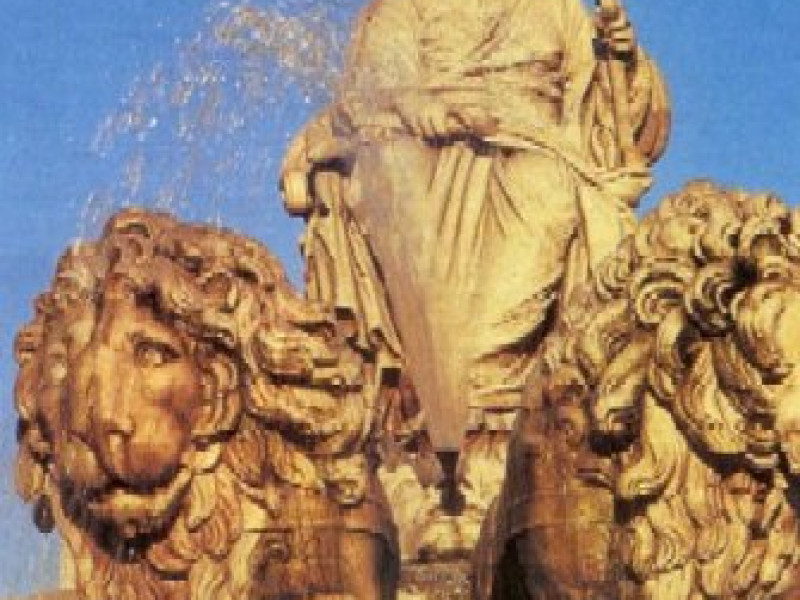Myrrha or Smyrna
There are two complete versions of the tragedy of Myrrha or Smyrna, told by the Greek Apollodorus or by Ovid, the Roman poet in his Metamorphoses. Ovid, as usual, is more descriptive than Apollodorus. However, Apollodorus cited several different versions or sources about Adonis' parents and how he died.
According to Apollodorus, her name was Smyrna (Σμύρνα), daughter of King Cinyras of Cyprus and Metharme, daughter of Pygmalion. Apollodorus also wrote that Myrrha's father was Theias, king of Assyria. Ovid and Hyginus said that her name was Myrrha, and also said that her father was Cinyras, but her mother was Cenchreis.
There is even more confusion over Cinyras' parents and his ancestors. According to Apollodorus, he was a descendant of Cecrops, king of Athens, through his daughter Herse. Hermes had seduced Herse so that she became the mother of Cephalus. After several generations, Sandocos married Pharnace and became the father of Cinyras. But according to Ovid, Pygmalion was not his father-in-law; Pygmalion was in fact his grandfather, and Paphos, son of Pygmalion, was Cinyras' father.
For the sake of convenience, I will use mostly Ovid as my source, but I have also referred to Apollodorus where they differ in detail. I will use the the names, Myrrha and Cinyras.
Cinyras (Κινύρας) was said to have founded the city of Paphos, which was sacred to Aphrodite. Cinyras was either the grandson or the son-in-law of Pygmalion. Cinyras married Cenchreis and became the father of Myrrha (Smyrna).
There are several possibilities of Myrrha's unnatural desire for her father. She was always in love with her father, or Aphrodite punished her for not honouring her (Apollodorus' version), or her mother Cenchreis had boasted that her beauty was greater than Aphrodite (Ovid's version). Whichever one was the case, Myrrha was inflamed with incestuous passion for her father. She refused to choose other suitors, because her father could not marry her. She was driven into such despair that Myrrha sought to end her life.
But her nurse interfered when she tried to hang herself. The nurse asked her young charge why she wanted to kill herself. When the nurse discovered the truth, she was horrified, but the old nurse had promised to help her. The nurse informed the king that a young woman was quite amorous with him, and arranged for him to meet her secretly at night.
So for twelve nights, the nurse led the wine-intoxicated king to Myrrha's bed. The king unwittingly slept with his own daughter, believing that he was sleeping with his mysterious mistress. Myrrha became pregnant from her father's seed.
But on the twelfth night, he brought a lamp with him so he could see his mystery lover. When the king discovered that had been duped into sleeping with his own daughter, he was absolutely appalled. Cinyras drew his sword, meaning to end his daughter's life. Myrrha fled in terror out into the woods. Myrrha prayed to the gods to hide her. The gods, taking pity on the young woman, transformed her into a myrrh tree which was also called smyrna in Greek.
Myrrha had become pregnant from her incestuous union with her father. Ten months later after her transformation, the tree burst open, revealing a baby boy. Aphrodite found the baby so beautiful that she decided to take him as her lover, when he was old enough. Aphrodite named the baby Adonis (Ἄδωνις).
The myth usually continued with the fate of Adonis, which you will find in the Tales of Lovers.
By Jimmy Joe




